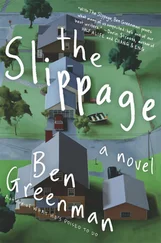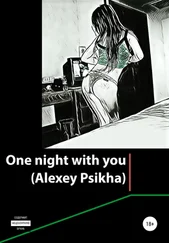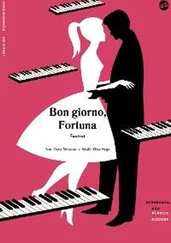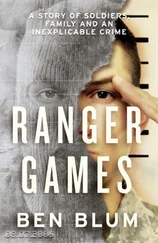“He can’t hear you,” Jill said. “It’s a TV.” But my mother spoke with such volume that I wasn’t sure that Jill was right.
6.
It would be nice to report that the love affair between Catherine and my father petered out — that she came to see him as an ineffectual man who had done his family wrong or that he came to see her as a siren who had tempted him into misdeed and mischance. In fact, his exit through the front door, and then the long pause by the fence, were the last we saw of him, at least in person. He married Catherine, moved back to Earth, helped her open the Hungry Cat, had a baby daughter named Rebecca, put ribbons in her hair, and developed a wide, toothy smile that he invariably displayed in the pictures that he sent us after birthdays and holidays. The photographs were accompanied by letters, and the letters, typed on a thin onionskin paper that allowed him to erase and retype over errors, were even more sadistic. He called Rebecca “your sister” and made outlandish promises to me and to Jill — vacations, ponies, battery-powered cars — that we believed painfully for the first year or two. The letters were addressed to me and to Jill at the house in Lunar City, for that was what Alpha Settlement had been named. Jill and I would sit in armchairs and read them, but my mother, aware that they represented a particularly efficient delivery mechanism for additional misery, seemed determined to ignore them. Every once in a while, though, she’d ask me or Jill how our father seemed to be doing. Jill scowled and refused to answer. “He seems a little unsure of himself, really,” I said, gently.
7.
I was gentle to my mother because I loved her. Jill was rough with her because she loved my father more. I missed my father because his departure left me without an idea of the kind of man I might become at the same time that it forced me prematurely to become that man. Jill missed my father because she had been deprived of her first love. Perhaps these things are obvious, but they struck me as insights, particularly in those first few years after my father left.
I tried to raise the issue with Jill once when we were out in the yard fixing the fence. We were out there fixing it almost every week. She screwed up her face. “You talk so fancy out here,” she said. “It’s like the fence is making you think you’re smarter. Do you think it can see inside the human soul? From now on I’m going to call it the Shrink Fence.”
“Call it what you want,” I said. “But don’t deny how important it is to you to feel Dad’s love.”
“I’m not feeling anyone’s anything,” she said. “You’re disgusting. Anyway, I don’t love him. I hate him.”
“You don’t hate him,” I said.
“Why would I love a man who walks out on his wife and children?” she said. “Why would I love a man who puts ribbons in that stupid little girl’s stupid hair? Why would I love a man who let Goosey escape?”
Just a year before, this memory would have brought on tears, but Jill, now fourteen, was hardening quickly, and even Goosey was more a spur to anger than a source of sadness. “And on that same topic,” she said, “why would I love a man who built this fence? Incompetent is the only way you can describe this thing.” We had been packing in dirt around the bases of the fence-posts, and now she stood and kicked at the post closest to her, and the fence buckled like a bad idea and the section closest to her went flat to the ground. Goosey wouldn’t even have needed to squeeze through the pickets. He could have just walked out, right over them.
8.
My mother was as angry as Jill, if not more so, but she had a different style entirely. To the untrained eye, her anger probably seemed as though it was pointing in all directions at once. It was not, not by a long shot. She hated the government, particularly the mayor, whom she held accountable for the way Lunar City was zoned.
“It’s his fault that we have almost no neighbors all the way out here,” she said. “I blame him for our loneliness.” She hated television detectives, as I have said, and pizza delivery boys, of course. But that was about it. She loved nearly everyone else, and she expressed that as passionately as she expressed her hatred. When Jill turned fifteen, she started to date a pizza delivery boy just to antagonize my mother, and she was always taunting her by saying things like “We were there at the store late because it’s his job to lock up” or “I think I left my sweater in the back of his van.” Jill confessed to me that she didn’t really like the guy, and that she hadn’t let him do more than put his hand up her shirt, but that she was driven to get my mother’s attention by at least pretending to be committing these transgressions.
“Driven to get attention by committing transgressions,” I said. “Sounds like someone has been standing out by the Shrink Fence.”
“Whatever,” Jill said. My mother was in the room now. “Anyway, I’m heading over to Eric’s place. He has a new mattress.”
My mother didn’t take the bait. She never did where people she loved were concerned. “Bye, Sweetie,” she said. “I can’t see what you see in him, but I trust that if you see something, it’s there. I believe in your judgment, because I feel that you are capable of great things. I hope you agree, or that you’ll come to agree.”
“Leaving,” Jill said. “Leaving leaving leaving.”
9.
But Jill didn’t leave. I left. I worked hard in high school, happier in class than at home, and spent afternoons out by the fence, thinking things through. When it came time to apply to college, my mother pressured me to attend Lunar City University, which was a fine institution, staffed by some of the best minds in America, many of whom had jumped at the opportunity to teach on the moon, others of whom had been reluctant initially but found the large salaries persuasive. “What do you like, business?” my mother said. “You can study business there. They say on TV that lunar franchises are a big deal now. Lunar franchises: Will you get a load of that?”
“I don’t like business,” I said. “Not at all.”
“What, then?” she said. “The law?” Her lip curled when she said it. But she loved me, and if I had said yes, she would have been right on it, weaving an elaborate defense of the law as a legitimate career.
“I don’t know,” I said. “I just want to go back to Earth.” And so I did, to a nondescript four-year university in a nondescript state in the broad middle of the nation, only fifty miles or so from where my father had settled with Catherine and Rebecca. At first, my mother and I spoke on the phone every week, but the conversations grew strained. There was something in the extreme long distance of the call that diluted the tone of our voices and made each of us less liable to believe the other. For example, she suspected that I was secretly spending time with my father and Catherine there on Earth, though I told her plainly that I wasn’t. And I suspected that she was angry at me, though that seemed impossible. One day, near the end of the first semester, she was worrying about what she should cook when I came back for vacation. I told her that I wasn’t sure I was coming, that I was thinking of spending the holiday in Maine with a roommate. “It might be easier if you and Jill just ordered something,” I said. I didn’t mean anything by it, though I realized as I said it that it meant everything. My mother didn’t speak for a few seconds. I imagined that her mouth was wide open. Then she told me that I was acting just like my father, which I took as a sign not to call her for a while.
10.
My relationship with Jill was better. We didn’t talk on the telephone or send each other electronic messages. Instead, we exchanged letters, and in those letters she was able to give a fuller account of how she was feeling. In fact, they seemed to encourage her to try to understand her own motives and the motives of those around her, and to analyze before she judged; they were like a portable version of the Shrink Fence. At the start of my sophomore year in college, she visited me. By then, she was a swan of a young woman, tall and beautiful and capable of cool irony along with the silliness and surliness that were her trademarks. At least two of my friends fell in love with her during the week she was on campus, and one of them went so far as to spend his winter break working on the moon, calling her daily and offering to take her to expensive restaurants. He returned to college in the spring, defeated because Jill had spurned his advances. In the next letter she sent me, she explained. “It wasn’t that there was anything wrong with Anton,” she said. “But I met a guy here and I think I’m in love. He’s a pizza delivery boy. Ha ha. I am just joking. But you know the irony of it? He owns the pizza store. His name is Jack Holland, and he moved up here from Earth just last year. He is a quite a bit older than me and divorced. He is also the tallest man in town, I think. He’s six-eight if he’s an inch. On our first date I told him about Moonesota and he laughed so hard he fell out of his chair. This is not an exaggeration or colorful language. He fell out of his chair. Sitting there on the ground, he was almost as tall as I was.”
Читать дальше












